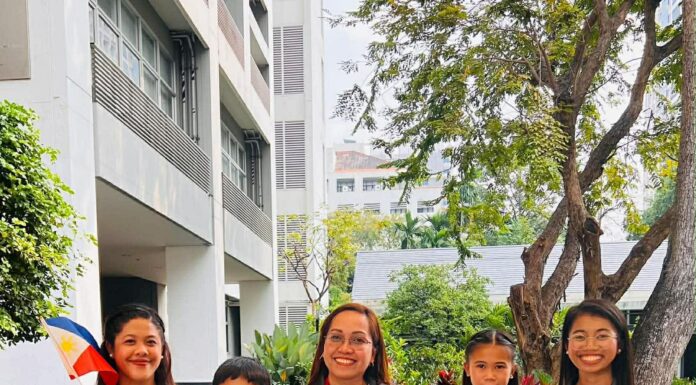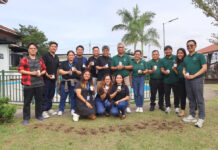Some speakers deliver data. Others stir something deeper. Professor Naqi Azam, President of Mylynx International Cambodia, did not bring slides to the 2025 Augustinian International Research Conference. What he brought instead was quiet clarity. Known across Asia for his work in digital transformation and cross-cultural leadership, Azam did not dramatize the rise of artificial intelligence. He simply held up a mirror—and asked us to look.
He reminded us that the biggest threat is not AI. It’s fear. The fear of falling behind. The fear of losing control. The fear of starting from scratch. Not just in systems, but in ourselves.
When Azam asked, “What is AI to you?” the room fell silent. But that pause was not awkward. It was honest. It revealed what many of us were feeling but did not say: AI, like culture, looks different depending on who’s holding it. There’s no single definition. No one-size-fits-all. Just stories. Questions. And the quiet permission to admit—we are all still figuring it out.
In our breakout group, we were asked how to lead with AI through cultural intelligence. At first, the prompt felt like a mountain. But as we talked, it became simpler. Leading in this new era is not about becoming tech experts, but about becoming better humans. Empathy—not efficiency—must lead the way.
Azam’s stories were not about machines. They were about people—educators choosing to unlearn, institutions learning to let go, and leaders deciding that change is less about tools and more about trust. In every story, the shift began not with innovation, but with courage.
It took me back to the pandemic years. I helped guide my school’s transition to blended online learning. We were lucky—we had the infrastructure and training. But many others did not. I saw teachers fumble through new apps, students sit silent in virtual classrooms, and principals unsure of where to begin. What looked like resistance was actually resilience. The struggle was not due to lack of tools—it was fear. Fear of failure. Fear of not knowing enough. And that’s where leadership had to begin—not with answers, but with presence.
True leadership, I have learned, is not loud. It’s curious. It’s the quiet bravery to say, “I don’t know—but I want to learn.” As Buckley (2025) noted, change does not come from compliance. It grows from curiosity. And in schools, where hierarchy still breeds silence, leaders must create space for dialogue, not dictate from above.
Azam reframed AI for us—not as a machine to master, but as a reflection of our values. Do we want faster lesson plans, or deeper connections? Do we want obedience, or understanding? IBM’s 2025 report found that over half of Filipino institutions lack clear data governance. That’s not just a tech issue—it’s a trust issue. Leading with AI means rolling up our sleeves, asking hard questions, and walking with—not ahead of—our people.
In our small group, one insight stood out: AI can never replace human instinct. A counselor knows a student is hurting not because of metrics—but because they are paying attention. AI can support. But it cannot sense. That is still our job. And that is the leadership we need—eyes open, heart attuned.
Azam did not sell us promises. He grounded us in reality: that school culture will never be built by machines. It will be shaped by people—teachers, learners, communities—willing to do the work. Irfan et al. (2024) confirmed this: tech works best when matched with clear policy, training, and care. Tools alone do not inspire. People do.
We also must stay grounded. AI won’t roll out evenly. Some classrooms are still fighting for signal. Some teachers are still swimming in paperwork. In those places, AI must feel like help, not burden. It must cut through red tape—not wrap teachers in more of it.
This does not mean tossing aside what works. It means rethinking how we move forward. Our value of pakikipagkapwa—the deep respect for shared humanity—must anchor our use of technology. Lesson generators should still leave space for stories, nuance, and voice. If they do not, we risk flattening learning into content, not connection.
As Dr. Benito Teehankee (2024) warned, we must resist reducing education to numbers. The goal is not faster outputs, but more compassionate systems. Real leaders listen—not just to data, but to silence, confusion, and even doubt. They remain teachable. That’s what Azam modeled—no fearmongering, no techno-optimism. Just a quiet, steady invitation to lead with heart.
In the end, Azam’s plenary was not about machines. It was about meaning. About being human enough to admit we don’t have all the answers. About being brave enough to begin again anyway.
Because AI won’t ruin us.|





















